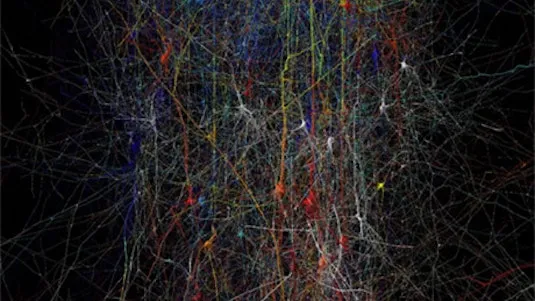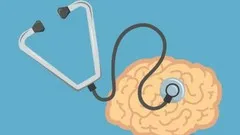
Synapses Neurons and Brains 
This course provides an overview of the current state of brain research, from the operational principles of synapses, neurons and networks to the simulation of large cortical networks. It also covers topics such as perception, cognition, emotions, and the future of brain research. Read the course promo and "About the Course" for more information. ▼
ADVERTISEMENT
Course Feature
![]() Cost:
Cost:
Free
![]() Provider:
Provider:
Coursera
![]() Certificate:
Certificate:
Paid Certification
![]() Language:
Language:
English
![]() Start Date:
Start Date:
31st Jul, 2023
Course Overview
❗The content presented here is sourced directly from Coursera platform. For comprehensive course details, including enrollment information, simply click on the 'Go to class' link on our website.
Updated in [March 06th, 2023]
Learners can learn from Synapses Neurons and Brains in three to four areas:
1. Brain Excitements: Learners will gain an understanding of the current “brain-excitements” worldwide and how they are impacting brain research.
2. Neuronal Life-Ware: Learners will become familiar with the operational principles of neuronal “life-ware” (synapses, neurons and the networks that they form) and how neurons behave as computational microchips.
3. Brain Simulation: Learners will explore recent attempts to realistically simulate large cortical networks in the computer, such as the “Blue Brain Project”.
4. Perception, Cognition and Emotions: Learners will gain insight into processes related to perception, cognition and emotions in the brain. They will also explore the future of brain research, including the questions of “brain and art”, consciousness and free will.
[Applications]
The application of this course can be seen in the field of neuroscience, where the knowledge gained from this course can be used to further understand the functioning of the brain. It can also be applied in the field of artificial intelligence, where the principles of neuronal “life-ware” can be used to create more realistic simulations of large cortical networks. Additionally, the course can be used to gain a better understanding of processes related to perception, cognition and emotions in the brain.
[Career Paths]
1. Neuroscientist: Neuroscientists study the structure and function of the brain and nervous system. They use a variety of techniques, including imaging, electrophysiology, and molecular biology, to understand how the brain works and how it affects behavior. Neuroscientists are in high demand as the field of neuroscience continues to grow and develop.
2. Cognitive Scientist: Cognitive scientists study the mental processes that underlie behavior, including perception, attention, memory, language, decision-making, and problem-solving. They use a variety of methods, including experiments, computer simulations, and mathematical models, to understand how the brain works and how it affects behavior.
3. Neuropsychologist: Neuropsychologists specialize in the study of the relationship between the brain and behavior. They use a variety of techniques, including neuropsychological tests, brain imaging, and neuropsychological assessments, to understand how the brain works and how it affects behavior.
4. Neuroengineer: Neuroengineers specialize in the design and development of technologies for the study and treatment of neurological disorders. They use a variety of techniques, including computer simulations, robotics, and neural networks, to develop new technologies for the diagnosis and treatment of neurological disorders.
[Education Paths]
1. Neuroscience Degree: A neuroscience degree is a great option for those interested in studying the brain and its functions. This degree focuses on the structure and function of the nervous system, including the brain, spinal cord, and peripheral nerves. It also covers topics such as neuroanatomy, neurophysiology, and neurochemistry. This degree is becoming increasingly popular as the field of neuroscience continues to grow and develop.
2. Cognitive Science Degree: Cognitive science is an interdisciplinary field that studies the mind and its processes. This degree focuses on the study of the mind, including topics such as perception, memory, language, decision-making, and problem-solving. It also covers topics such as artificial intelligence, robotics, and computer science. This degree is becoming increasingly popular as the field of cognitive science continues to grow and develop.
3. Psychology Degree: A psychology degree is a great option for those interested in studying the mind and behavior. This degree focuses on the study of the mind and behavior, including topics such as cognition, emotion, motivation, and development. It also covers topics such as abnormal psychology, psychotherapy, and research methods. This degree is becoming increasingly popular as the field of psychology continues to grow and develop.
4. Computer Science Degree: A computer science degree is a great option for those interested in studying the brain and its functions from a computational perspective. This degree focuses on the study of computer systems and their applications, including topics such as algorithms, data structures, programming languages, and software engineering. It also covers topics such as artificial intelligence, robotics, and machine learning. This degree is becoming increasingly popular as the field of computer science continues to grow and develop.
Pros & Cons

Great introduction to neuroscience.

Well-structured and interactive.

Enthusiastic teacher.

Difficult for non-experts.

Heavy dose of maths.

Not suitable for casual learners.
Course Provider

Provider Coursera's Stats at AZClass
Discussion and Reviews
0.0 (Based on 0 reviews)
Explore Similar Online Courses

Master Class for Corporate Entrepreneurs

Certification3 WEC Personal Finance Life Coaching

Python for Informatics: Exploring Information

Social Network Analysis

Introduction to Systematic Review and Meta-Analysis

The Analytics Edge

DCO042 - Python For Informatics

Causal Diagrams: Draw Your Assumptions Before Your Conclusions

Whole genome sequencing of bacterial genomes - tools and applications

Control Your Subconscious Mind: Neuroscience Hidden Secrets

Perform an Excellent Neurological Bedside Exam

Brain and Behavioral Science Fundamentals
 Related Categories
Related Categories
 Popular Searches
Popular Searches
Quiz
 Submitted Sucessfully
Submitted Sucessfully
1. What is the Blue Brain Project?
2. What is the main focus of the course?
3. What is the goal of the Blue Brain Project?
4. What is the 'Blue Brain Project'?
Correct Answer: It is a heroic attempt to realistically simulate large cortical networks in the computer.


Start your review of Synapses Neurons and Brains